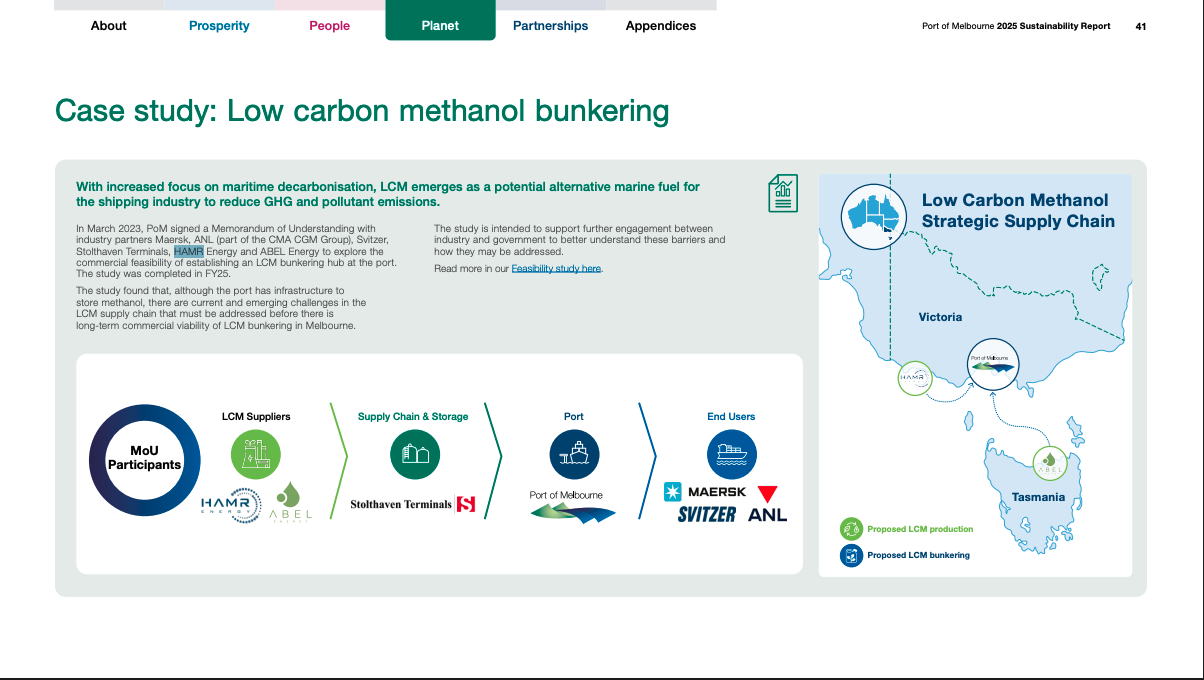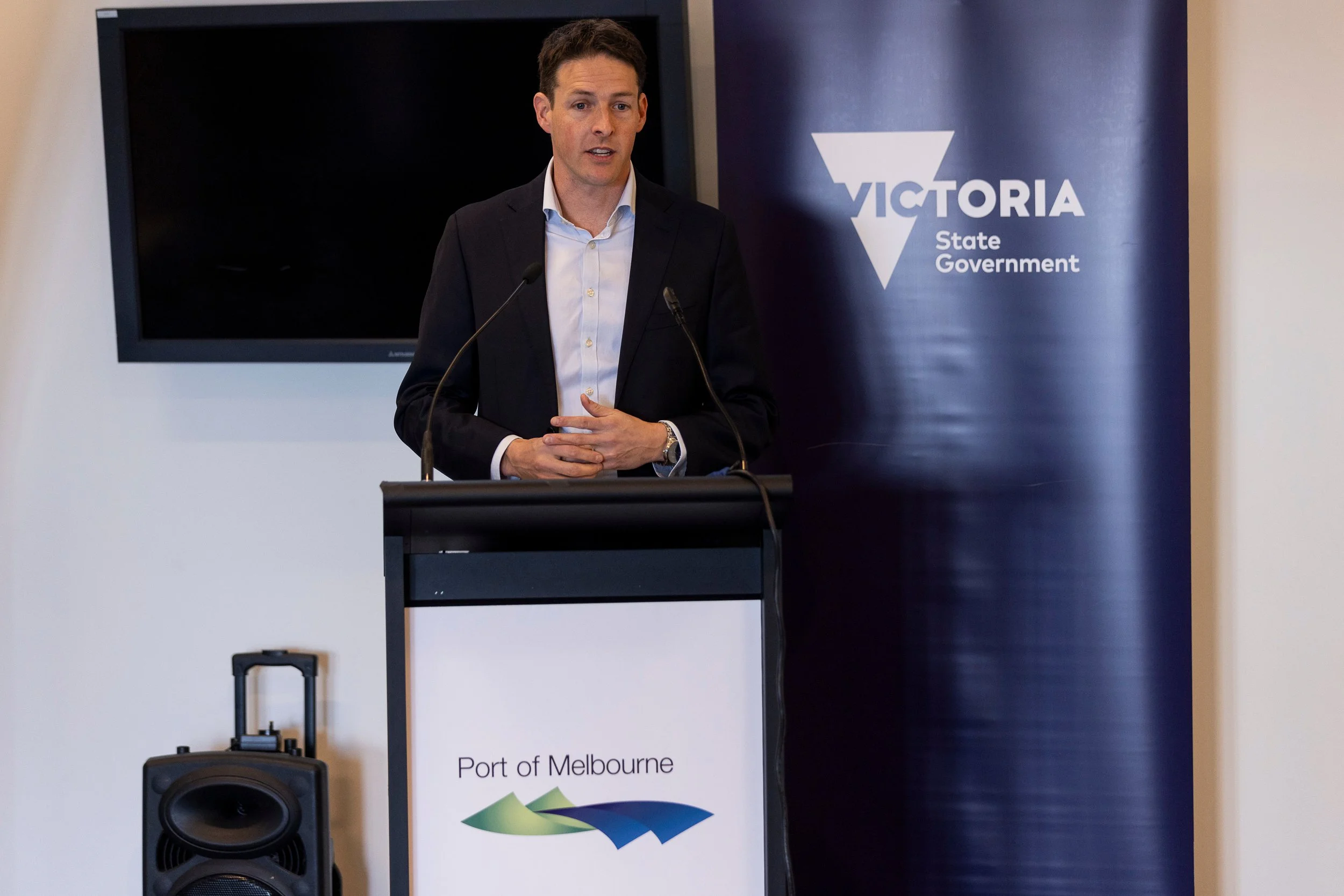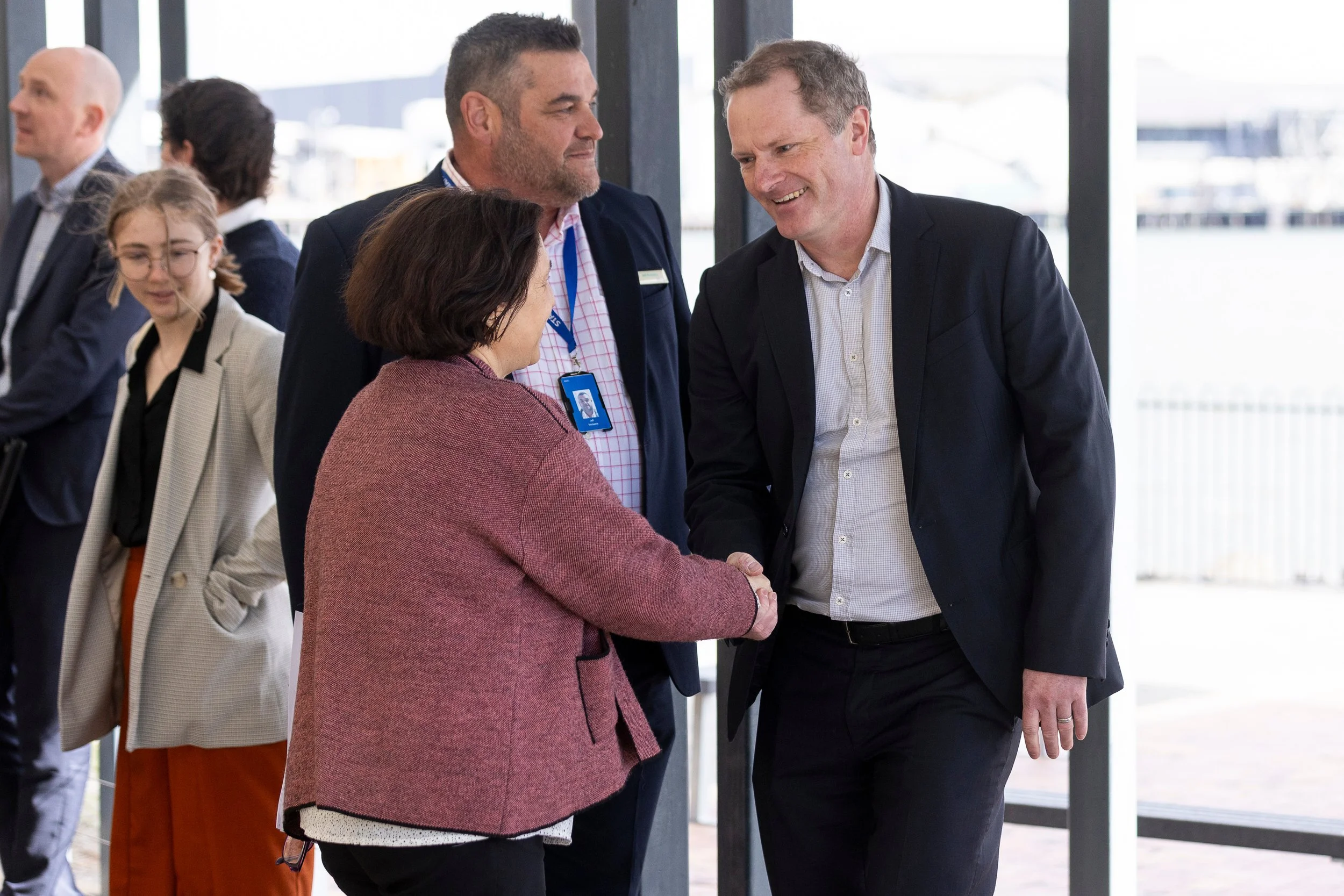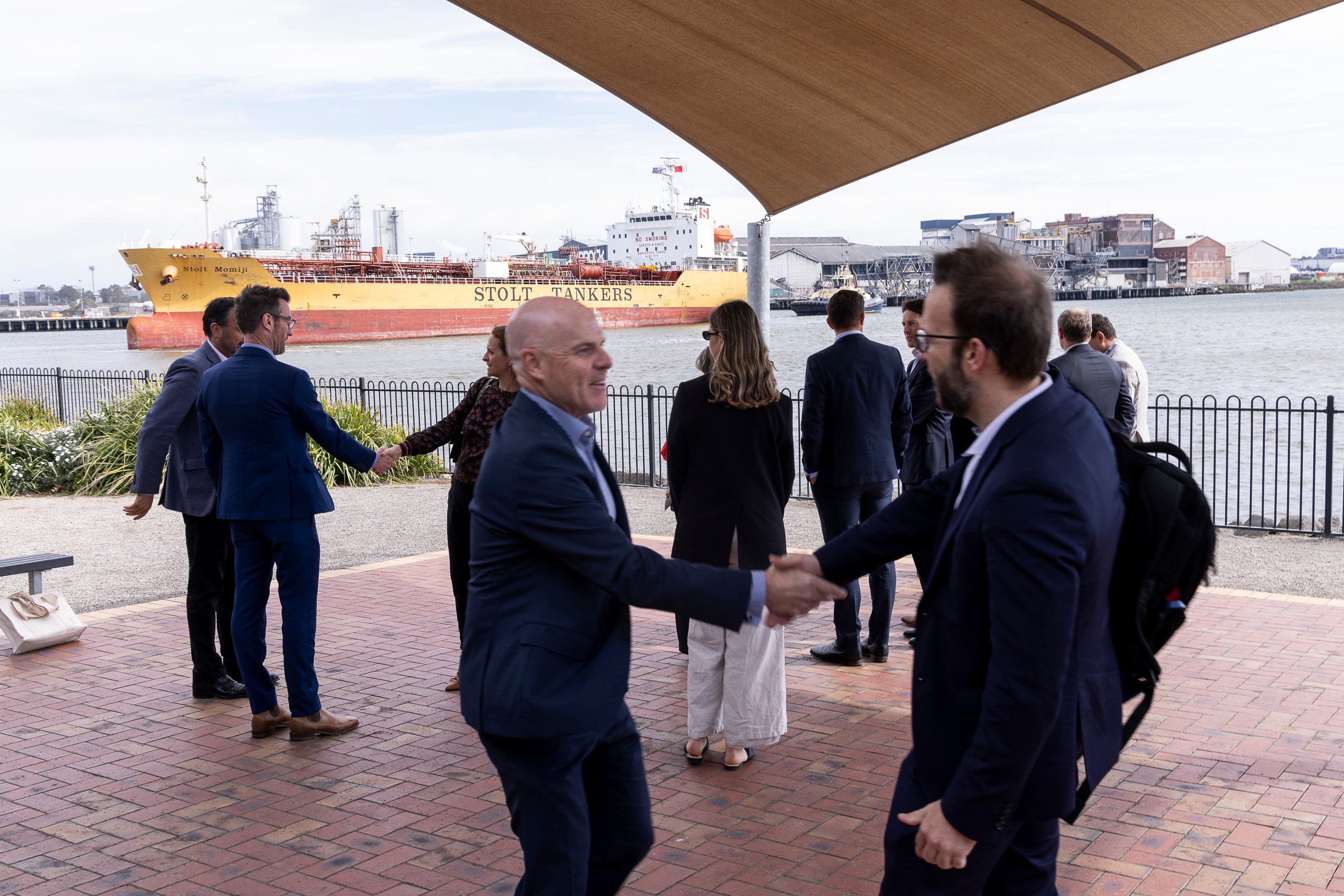Port Melbourne Low Carbon Marine Bunkering Feasibility Study phase one completed ✅
Decarbonising shipping requires more than ambition... it demands real, analytical, and collaborative work. That’s exactly what our partner, Port of Melbourne, has achieved in their recent Low Carbon Marine Bunkering Feasibility Study, conducted alongside key stakeholders across the value chain.
HAMR Energy co-founders & directors David Stribley and Alex Smith at Port of Melbourne study annoucement
This recently released public summary, is a great example of the work needed to create the ecosystem required to enable hard-to-abate sectors to decarbonise.
HAMR Energy is committed to driving the future of clean energy in Australia. We are excited about the potential of low carbon methanol to transform the shipping industry and create a more sustainable future for all. Stay tuned for more updates on this landmark project.
The report looks into how low-carbon fuels like methanol can be deployed to enable real maritime decarbonisation at Australia’s largest port.
HAMR Energy is proud to contribute to helping deliver the clean fuels infrastructure this report calls for. The energy transition in hard-to-abate sectors requires:
✔️ Engineering
✔️ Modelling
✔️ Market collaboration
👏 Congratulations to Port of Melbourne and all contributors for moving the conversation forward, analytically and ambitiously. We look forward to the next instalment of the study!
🔗 Read the feasibility study report here: https://lnkd.in/gbCrUqXK
“HAMR Energy is developing a world-class lower emissions methanol facility in Portland, Victoria to accelerate shipping industry decarbonisation which will rely entirely on natural and renewable resources available in Australia”
Read an overview of the project report below:
HAMR Energy is proud to be at the forefront of Australia's transition to a green shipping future. In collaboration with a consortium of industry leaders, we have taken a significant step towards establishing a low carbon methanol bunkering hub at the Port of Melbourne. Here’s a snapshot of the projects journey: what we’ve done, what we’ve learned, and what’s next.
Done:
We, along with our partners Port of Melbourne, ANL, Maersk, Svitzer, Stolthaven Terminals, and ABEL Energy, have successfully completed the first phase of a comprehensive feasibility study. This collaborative effort, initiated through a Memorandum of Understanding (MoU) signed in March 2023, has laid the groundwork for a green methanol supply chain in Australia's largest container port.
Key Learnings:
The feasibility study has confirmed the technical and operational viability of developing a low carbon methanol supply chain at the Port of Melbourne. Here are some of our key takeaways:
Strong Demand: There is a growing and significant demand for low carbon methanol, driven by the global push to decarbonise the shipping industry.
Local Supply: Victoria has robust potential for local production, with HAMR Energy and ABEL Energy planning to produce around 300,000-650,000 tonnes of green methanol annually by 2030. This local supply is crucial for a resilient and competitive supply chain.
Infrastructure Advantage: The Port of Melbourne’s existing infrastructure for handling chemical and fuel products is a major advantage. While some modifications and new bunkering procedures will be required, the transition to low carbon methanol is very achievable.
Collaboration is Key: The success of this initiative hinges on continued collaboration between producers, port authorities, shipping lines, and government bodies to address regulatory, commercial, and operational challenges.
What’s Next?
With a solid foundation in place, we are now moving into the next exciting phase of the project. Our focus will be on:
Developing a Business Case: We will work with our partners to create a compelling business case and viable operating models for low carbon methanol bunkering.
Addressing Challenges: The next phase will involve a deeper dive into the commercial viability, including the capital investment required for necessary infrastructure and the operating costs.
Government and Industry Collaboration: Port of Melbourne will continue to work closely with government and industry stakeholders to create a supportive regulatory environment and to explore opportunities for co-investment and public-private partnerships.
Pilot Program: We are setting the stage for a potential pilot demonstration project to showcase the real-world application of low carbon methanol bunkering in the Port of Melbourne.







